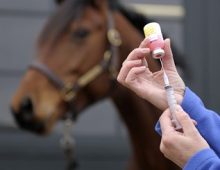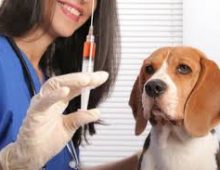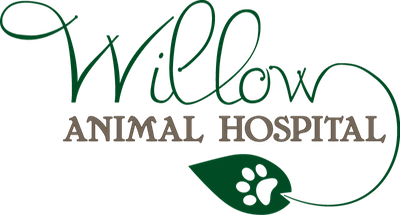Tag Archives: rabies
Vaccination Clinics
Dates have been chosen for the 2020 Willow Animal Hospital Vaccination Clinics!
See our calendar for the upcoming vaccination clinics in January and February. We will be going to Oulu, Port Wing, Maple, Mason, and Mellen, WI.
We offer vaccinations for dogs and cats at a discounted price from our regular in-clinic prices.
Please call us at 715-682-2470 to notify us that you are coming so that we can be better prepared. If we have never vaccinated your pet in the past, please have their records emailed or faxed to our office before the clinic.
We do not perform diagnostics at this clinic. If your pet is suffering from a medical condition please schedule a regular exam in a veterinary facility.
These events are Cash or check only.
World Rabies Day
Today, September 28th, is World Rabies Day. Rabies is 100% preventable, but it’s up to you to ensure your pets and loved ones are protected. How can you do this?
1) Vaccinate your pet. Rabies vaccines are required by most municipalities for dogs AND cats. However, ferrets and select livestock should also be given rabies vaccines as well! Contact us today if you’re unsure of your pet’s vaccination status.
2) Avoid wild animals, especially bats. Most of the human cases in the United States have resulted from exposure to bats. If you find a bat in your home, call animal control right away.
3) Don’t let your pets roam free. This helps reduce the possibility of exposure to wild animals that may have rabies.
4) Don’t leave exposed garbage or pet food outside. This helps deter wild animals from visiting your home.
5) If you observe a wild animal (especially raccoons, skunks and foxes) acting strangely, such as excessive drooling, aggressiveness, staggering, or out when they’re not typically out (such as nocturnal animals out during the day), call animal control right away to report the type of animal, behaviors, and locations you saw.
(Photo courtesy of: https://veterinaryha.org)
Rabies is Incurable?!?
Rabies is a zoonotic disease, meaning it can be transmitted between people and animals. Wildlife like bats, skunks, and raccoons are some of the most common carriers of the disease. Infection occurs when saliva of the infected animal enters the bloodstream of another mammal (this is often from a bite). The disease can take weeks to months to develop symptoms, but once they develop the disease is fatal. Recent confirmed cases of rabies in bats in Ashland and Bayfield Counties have been documented. Please consider the following steps to protect yourself from this deadly disease:
•Keep your pets current on their rabies vaccination. It is only legally required in dogs, but highly recommend in other species (cats, horses, etc.). Not only will this protect your pet from rabies, but in turn it protects you from being exposed to rabies from your own pet.
•Keep your distance from mammalian wildlife, especially any exhibiting abnormal or sickly behavior (ex. a skunk roaming during daylight, a bat acting weak and sick)
•If you are bit by mammalian wildlife contact your local health department. They will direct you on how to submit the animal for rabies testing, if necessary. Only collect the animal if it can be done safely, and try to avoid damaging the head. If you cannot collect the animal, you should still contact your local health department for further instructions.
•If you find a bat in your house contact your local health department. Bat bites can often go unnoticed while you are sleeping. The health department will direct you on how to submit the animal for rabies testing, if necessary. Dr. Sarah Myers, Willow Animal Hospital
(photo courtesy of: www.delavanlakesvet.com)
Protect Your Horse With Vaccinations
Every spring questions arise regarding equine vaccination. What does my horse need? When should it be given? And others. Let me share some thoughts that may help you vaccinate your horse appropriately:
Many horses carry the Tetanus organism in their intestinal tract where it does no harm. However, their manure then serves as a source of this bacteria, which is dangerous if it enters the body through a wound. Thus, horses are especially prone to exposure to tetanus and all should receive an annual Tetanus toxoid vaccine. It makes no difference if your horse has exposure to other horses.
In like manner, there is a group of three diseases that are carried by birds and then spread from the bird to your horse via mosquitoes. Your horse can be infected by these agents even if it is totally isolated, simply because there are birds and mosquitoes everywhere.
These three agents/viruses are:
1) Eastern Encephalomyelitis (“Sleeping Sickness”)
2) Western Encephalomyelitis
3) West Nile
I recommend that all horses be vaccinated for these three agents, as well as Tetanus.
All the other vaccines out there are not quite so simple and require some decision-making. One question that I ask is, “Will your horse be exposed to other horses?” If you plan to travel to the fair, horse shows, etc. you should protect your horse against the diseases that spread from horse to horse. These include Rhinopneumonitis and Influenza. Immunity to these agents may not be long-lasting, so plan to vaccinate a month before exposure and/or consider a mid-season booster if your show season is long. Young horses (less than 6 years old) are also susceptible to “Strangles” (Streptococcus Equi). Rabies vaccine is also given to a very small percentage of horses in this area, despite our very low risk.
Beyond that, there are a number of other vaccines available (i.e. Equine Arteritis, Anthrax, Botulism, and Potomac Horse Fever) that are not routine at all for local horses, but may be helpful in special situations involving travel.
Dr. Steve Meyer, Willow Animal Hospital (photo courtesy of: www.thehorse.com
Vaccination Clinics are here!!
Is your dog or cat due for vaccinations? Is money a bit tight this year? Come see us at one of our annual dog & cat Vaccination Clinics! We visit Oulu, Port Wing, Cornucopia, Maple, Brule, Mason and Mellen, offering discounted vaccinations, as well as annual heartworm and tick-borne diseases testing and prevention, and internal parasite preventatives.
See our website for more information about dates, times and locations. (photo courtesy of: www.petinsurance.com)










